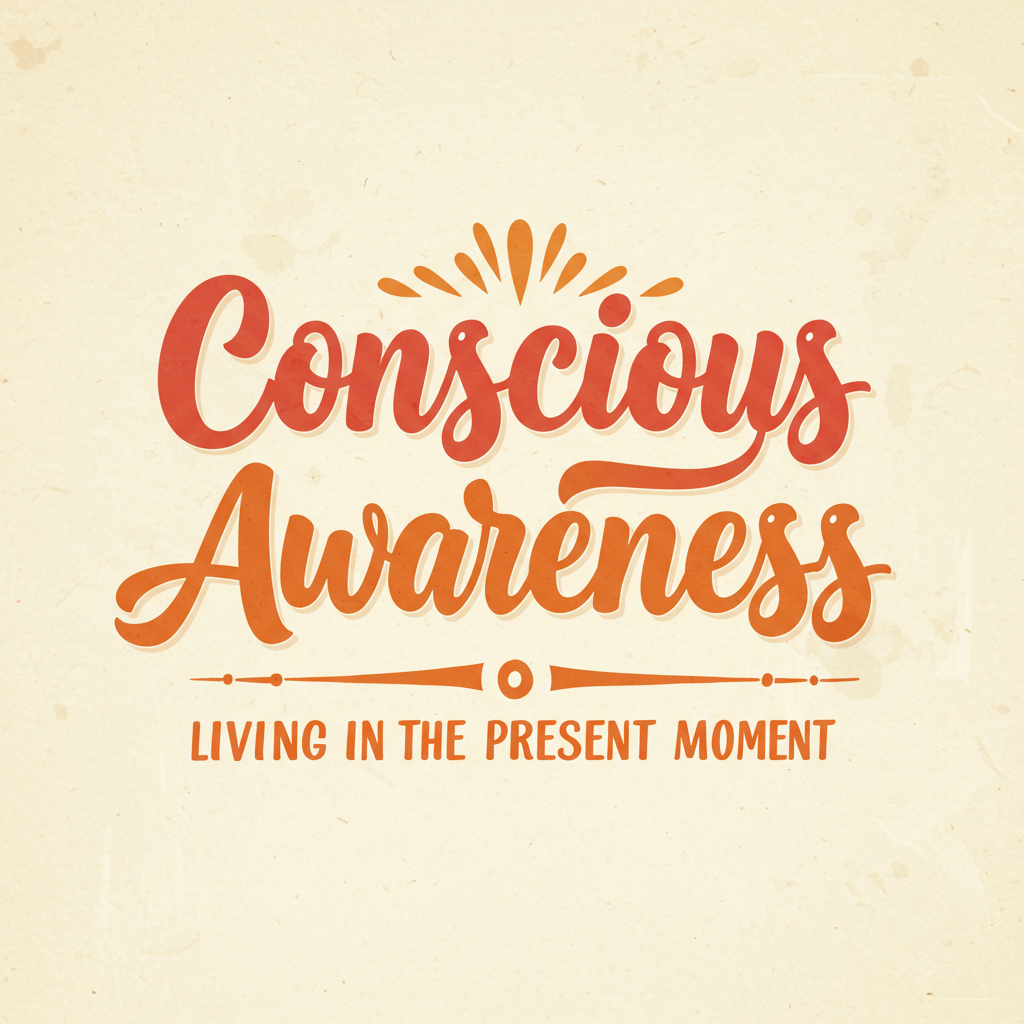In today’s fast-paced world, many people find themselves constantly distracted—either dwelling on the past or anxiously anticipating the future. We rush through our days on autopilot, missing out on the richness of life unfolding in the present moment. But what if the key to true peace, happiness, and clarity lies in the now? This is where conscious awareness comes in.
Conscious awareness, also known as mindfulness, is the ability to fully engage with the present, free from distractions, regrets, or worries about what’s next. It is the practice of being intentionally aware of your thoughts, emotions, and surroundings without judgment. By cultivating this state of awareness, you gain greater control over your mind, reduce stress, and improve overall well-being.
Why Is Living in the Present Moment Important?
Research has shown that practicing conscious awareness can lead to: ✅ Reduced stress and anxiety – Studies from Harvard University indicate that people who focus on the present experience lower levels of stress and improved mental health. ✅ Greater emotional resilience – Mindfulness strengthens neural pathways related to emotional regulation, helping you navigate life’s challenges with clarity. ✅ Enhanced focus and productivity – Living in the present eliminates mental clutter, allowing you to focus better and make more effective decisions. ✅ Stronger relationships – Being fully present in conversations deepens connections and improves communication with others.
This article will explore the science and benefits of conscious awareness, along with practical techniques to help you break free from unconscious patterns and start living more mindfully. Whether you’re seeking inner peace, greater success, or simply a deeper appreciation for life, learning to live in the present moment is a powerful step toward transformation.
The Science of Conscious Awareness
How Your Brain Processes the Present Moment
Your brain is constantly processing sensory input, but most of this happens subconsciously. According to neuroscientist Dr. Daniel J. Siegel, “The brain’s default mode network (DMN) is responsible for wandering thoughts, pulling us away from the present moment. Mindfulness practices deactivate this network, allowing us to be more present.”
A study published in the Journal of Cognitive Enhancement found that long-term mindfulness practitioners have increased gray matter density in areas associated with attention and emotional regulation, demonstrating that conscious awareness can physically change the brain.
The Role of Neuroplasticity in Conscious Awareness
Neuroplasticity, the brain’s ability to rewire itself, plays a crucial role in developing mindfulness and living in the present. A study from Stanford University found that mindfulness meditation can increase the size of the prefrontal cortex, which is responsible for focus and self-awareness.
Practical Techniques to Cultivate Conscious Awareness
1. Mindful Breathing
One of the simplest and most effective ways to develop conscious awareness is through mindful breathing. By focusing on your breath, you anchor yourself to the present moment and reduce mental chatter.
How to Practice Mindful Breathing:
- Sit comfortably and close your eyes.
- Inhale deeply through your nose for four seconds.
- Hold your breath for two seconds.
- Exhale slowly through your mouth for six seconds.
- Repeat for 5-10 minutes.
2. Grounding Techniques
Grounding exercises help bring your attention back to the present by engaging your senses.
Try the 5-4-3-2-1 technique:
- 5 things you see
- 4 things you touch
- 3 things you hear
- 2 things you smell
- 1 thing you taste
3. Meditation and Mindfulness Practices
A meta-analysis published in JAMA Internal Medicine found that meditation reduces anxiety by 38% and improves focus by 46%.
Types of Meditation:
- Body Scan Meditation – Focus on different parts of your body to release tension.
- Loving-Kindness Meditation – Cultivate compassion for yourself and others.
- Zen Meditation – Practice deep focus and presence.
4. Digital Detox
Excessive screen time can pull you away from the present moment. Try implementing “screen-free” hours each day to improve mindfulness.
5. Journaling for Self-Reflection
Writing down your thoughts helps you process emotions and become more self-aware.
Journaling Prompts for Mindfulness:
- What am I grateful for today?
- What thoughts are occupying my mind right now?
- How can I be more present in my daily life?
The Benefits of Conscious Awareness
1. Enhanced Emotional Well-Being
Studies show that people who practice mindfulness report a 40% reduction in depressive symptoms (Harvard Medical School, 2019).
2. Better Decision-Making
A study from Yale University found that mindfulness practitioners make more rational decisions under stress due to increased activity in the prefrontal cortex.
3. Strengthened Relationships
Being fully present in conversations fosters deeper connections and reduces misunderstandings.
Recommended Reading
For a deeper understanding of consciousness and the power of belief, check out The Biology of Belief: Unleashing the Power of Consciousness, Matter, and Miracles by Bruce H. Lipton here.
Take Action: Free eBook Download
Ready to rewire your brain for success? Download my free eBook, Brain Recode: Master the Art of Mental Reprogramming, here and start transforming your subconscious mind today!
Related Articles
- Expanding Your Consciousness: Practices for Higher Awareness
- The Power of Focus: How to Train Your Mind for Success
For more insights, visit our Consciousness Category or explore our Mind Pillar Page.
FAQs
Q: How can I train my mind to stay in the present?
A: Regular mindfulness practices like meditation, journaling, and deep breathing can help train your brain to stay present.
Q: Can conscious awareness reduce anxiety?
A: Yes! Studies show that mindfulness reduces anxiety by up to 38% by shifting focus away from negative thought loops.
Q: How long does it take to develop conscious awareness?
A: It varies, but consistent practice over 21-66 days can lead to lasting changes in brain function and awareness.
Conclusion
Conscious awareness is a powerful tool that can transform your mental, emotional, and physical well-being. By implementing mindful practices, reducing distractions, and cultivating presence, you can unlock a new level of peace and clarity. The present moment is all we truly have—embrace it fully and experience life to the fullest.

